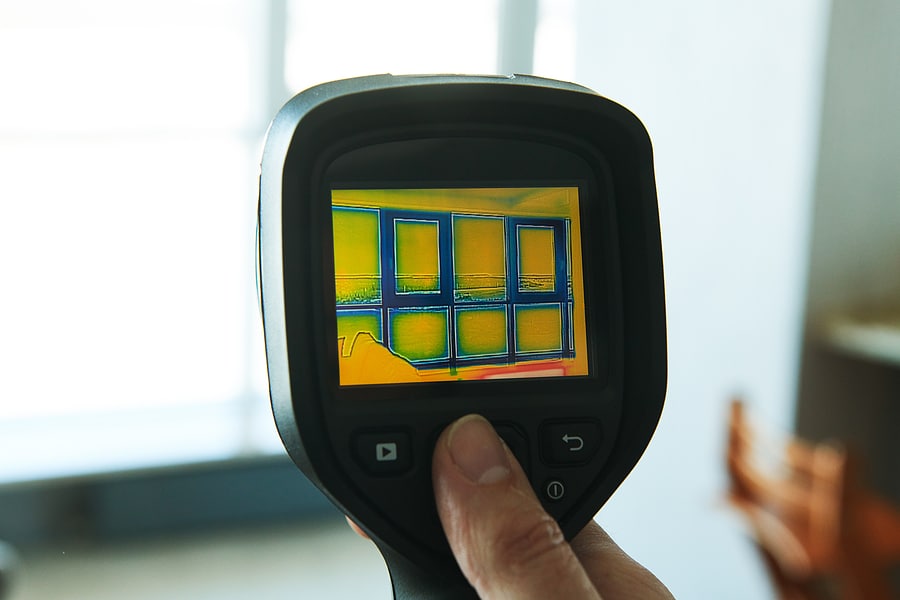5 Reasons to Include Thermal Imaging in Your Home Inspection
When it comes to purchasing a home, appearances can be deceiving. A freshly painted exterior or a beautifully renovated kitchen may catch your eye, but what lies beneath the surface could tell a different story. That’s where thermal imaging comes in—a cutting-edge technology that can reveal hidden issues and provide invaluable insights during the home inspection process. Continue reading to learn more from the team at CalPro Inspection Group.

1. Detecting Hidden Defects
While traditional visual inspections can uncover obvious issues, such as leaks or mold, they often fall short of identifying hidden defects, like insulation gaps, electrical hotspots, or plumbing leaks concealed behind walls. Thermal imaging, however, allows inspectors to detect temperature variations that may indicate underlying problems invisible to the naked eye. By capturing infrared images of the property, thermal cameras reveal discrepancies in temperature distribution, helping uncover potential issues before they escalate into costly repairs.
2. Comprehensive Assessment
Incorporating thermal imaging into the home inspection process enables a more comprehensive assessment of the property’s condition. By supplementing visual observations with thermal data, inspectors gain a deeper understanding of the home’s thermal performance and structural integrity. From detecting moisture intrusion to identifying areas of inadequate insulation, thermal imaging provides valuable information that enhances the accuracy and reliability of the inspection report.
3. Early Detection of Moisture Intrusion
Moisture infiltration is one of the most common issues encountered in residential properties, leading to mold growth, wood rot, and structural damage if left unchecked. Traditional moisture meters can detect surface-level moisture, but they may miss hidden sources of water intrusion within walls or ceilings. On the other hand, thermal imaging can pinpoint moisture accumulation by detecting temperature differentials caused by evaporative cooling. By identifying potential moisture problems early on, homeowners can take proactive measures to address them, preventing costly damage and preserving the integrity of the property.
4. Energy Efficiency Assessment
In an era of rising energy costs and growing environmental awareness, energy efficiency has become a key consideration for homeowners. Thermal imaging can play a vital role in assessing the thermal performance of a property by identifying areas of heat loss or air leakage. By identifying insulation deficiencies, drafty windows, or poorly-sealed doors, thermal imaging empowers homeowners to prioritize energy-saving upgrades that enhance comfort and reduce utility bills over time.
5. Negotiation Tool
Armed with the insights provided by thermal imaging, homebuyers can negotiate more effectively during the purchasing process. By documenting potential issues revealed by thermal scans, buyers can request repairs or adjustments to the sale price, ensuring they’re making an informed investment. Likewise, sellers can proactively address identified issues or provide documentation of recent repairs, instilling confidence in prospective buyers and facilitating a smoother transaction.
Incorporating thermal imaging into your upcoming home inspection is a wise investment that pays dividends regarding peace of mind, financial security, and informed decision-making. Contact CalPro Inspection Group today at (800) 474-3540 to request a quote or to schedule an inspection. We serve Greater Sacramento and the entire Bay Area.
